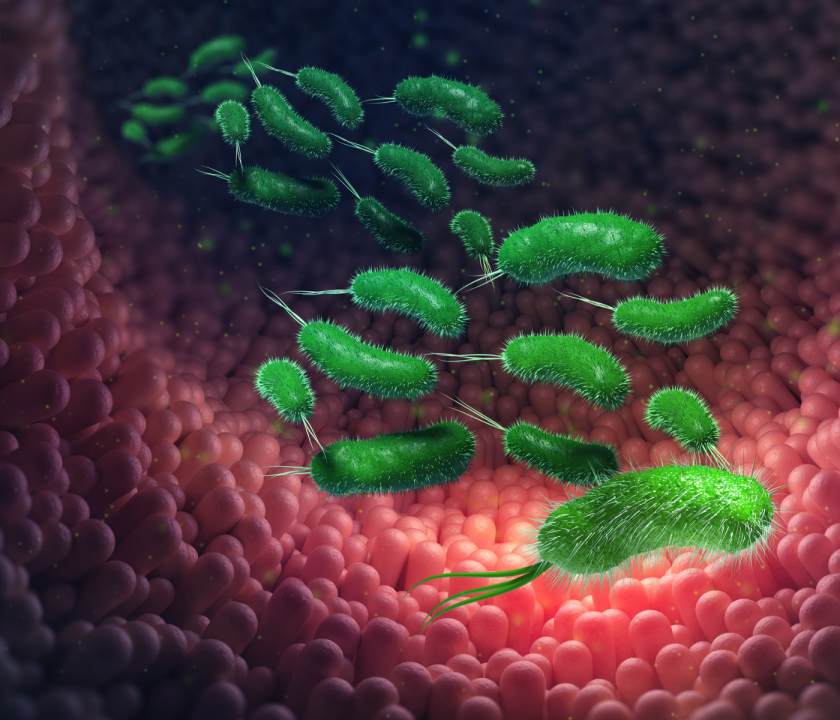Content available at: العربية (Arabic)
STRESS AND INFLAMMATION
Stress and inflammation are nonspecific defense mechanisms (innate responses) involving hormones, neuropeptides, immune cells, and molecular mediators that are essential for the survival and healing processes in all living organisms.
During a stressful situation, the hormones (adrenaline and glucocorticoids) prepare all cells in the body to either “fight or fly.”
- If the stress continues, these hormones remain in circulation, keeping the animal in chronic “survival-mode.”
- Under stress, the animal reduces its growth, and a massive oxidative stress response causes chronic inflammation.
- Oxidative stress damages cell and mitochondria membranes and, consequently, compromises cell physiology in all tissues and organs. For these reasons, chronic stress and inflammation are called “secret killers.”
INTESTINAL MICROBIOTA AND THE IMMUNE SYSTEM
Aside from being in charge of absorption and digestion of water and feed, the gastrointestinal tract harbors a diverse and complex microbial community known as gut microbiota. The intestinal microbiota overpasses the number of somatic cells by ~10:1, and ~300,000 genes versus 23,000 genes in the chicken. Also, the enteric nervous system (the second brain) has over 100 million neurons, more than in the peripheric nervous system.
The intestine produces over 20 different hormones and approximately 80% of immune cells are in the gut-associated lymphoid tissue (GALT). Up to 90 % of all diseases are linked to the gut and stability of the microbiome
In domestic animals, chronic stress and inflammation have a significant negative impact on health and performance. Poultry is no exemption, especially if we consider that in birds, a primary organ lymphoid, the bursa of Fabricius, responsible for proliferation and differentiation of B cells (humoral immunity), is part of the GALT.
During chronic stress and intestinal inflammation, vital body energy, which under normal conditions the birds’ use for feed efficiency and growth, is utilized to keep the system in “survival mode.”
Keep up to date with our newsletters
Receive the magazine for free in digital version
REGISTRATION
ACCESS
YOUR ACCOUNT
LOGIN
Lost your password?

